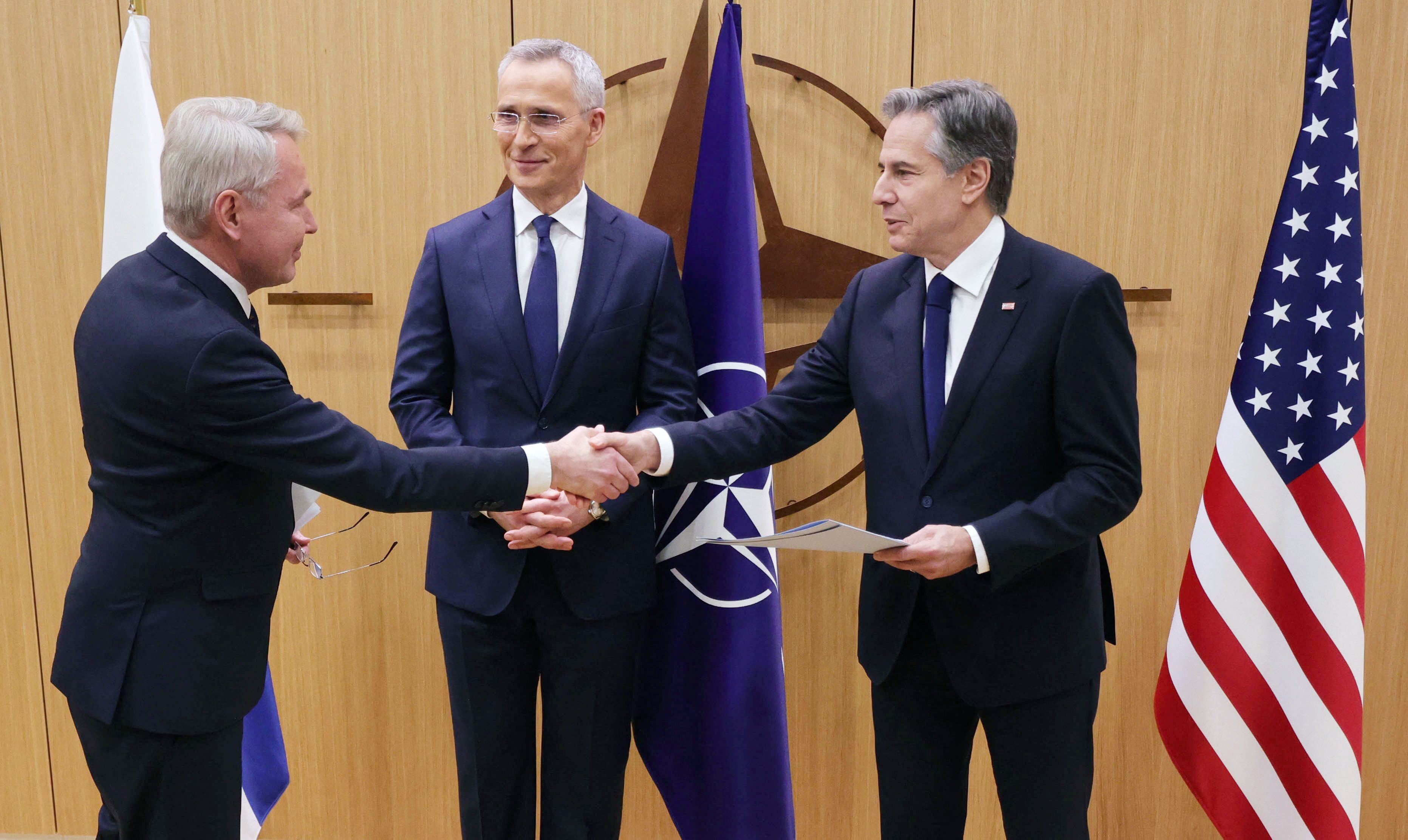Russia-NATO Rivalry Heats Up as Ice Melts in the Arctic
Debi Karmakar | 10 May 2023
Henry A. Arnold, a famous general in United States Air Force history, once predicted that if a third world war were to break out, the North Pole would become the strategic centre point. Finland joined NATO on April 4 after decades of remaining neutral, including during the height of the Cold War. As a direct result, the border between Russia and NATO has doubled. In the backdrop of the Russia-Ukraine war, Finland agreed to join NATO under the umbrella of Article 5. Formerly opposed to nuclear deployment, Finland now seeks the peace and security provided by nuclear deterrence and the defense of NATO. This will eventually call for a security dilemma and military confrontation in the foreseeable future. A Russian official has already spoken out against NATO's expansionist plan, and the alliance has relocated its nuclear arsenal to Belarus.
Arctic geopolitics are undergoing seismic change. Climate, hydrology, and bathymetric limits along the Northern Sea Route all contributed to a reduction in the Arctic's perceived significance. As the ice melts, however, new transportation routes appear, as do previously untapped natural resources like gas and oil locked beneath the ice rocks. Because of Russia's desire to exploit the region's natural resources and cut off the west from the arctic, a formerly peaceful region has become a flashpoint in international politics. Russia claims more than half of the Arctic's coastline. So, the Arctic is really Russia's backyard. Russia must have easy access to hydrocarbons, which make up the majority of petroleum and natural gas. The value of mineral deposits exceeds 30 trillion dollars.
Russia must press on with its maritime exploration even with the presence of a proxy Arctic state, China, because of the wealth of its natural resources and the accessibility of northern sea routes. After Russia's invasion of Ukraine, the Arctic Council decided it could no longer work with the country. Arctic nations have joined EU sanctions as well. The Nordic Council of Ministers announced that regional cooperation between the Nordic nations and Russia has been suspended. After the European Council imposed sanctions, Greenland stopped exchanging fishing quotas with Russia. Russia is no longer a permanent member and holds the rotating presidency of the council. Because of this, the Council had to halt all 130 joint operations and cut off all communication with Moscow. This effectively cut off Russia from the rest of the world, forcing Russia to negotiate a maritime pact with China on April 25, 2023.
In his book "Principles of War," German geo-strategist Carl von Clausewitz said that "the encirclement of the enemy necessitates a greater deployment of forces in the front line for the aggressor." NATO's admission of Finland is a well-planned strategic surprise for Russia that follows the logic of encirclement. After the Russian invasion of Ukraine, Finland reevaluated its security situation and decided to join NATO in order to provide stability and security for the country, the Baltic Sea region, and Northern Europe. The Arctic region, where Russia and Finland share a border, will be hit hard. Rogachevo Airfield, located in the Novaya Zemlya Archipelago, is a prime example of Russia's efforts to reassert its presence in the Arctic. All cutting-edge fighter aircraft will be based at this location, which is conveniently situated near the Northern Sea Route. Near the Matochkin Strait, nuclear weapons are mostly tested at this airport. Russian long-range bombers will be based at the airstrip as part of the Russian Air Force's expanded Arctic presence. Iran and Saudi Arabia, along with nine other nations from Africa, Latin America, and Eurasia, took part in a rescue exercise that Russia hosted in the Arctic on April 6 and 7. Russia has invited non-Arctic states like India and Iran to increase their commercial presence in the Arctic in order to counter NATO's presence there through a military buildup. Given China's aspirations in the Arctic, the region is poised to become a geopolitical flashpoint between Russia and NATO.
Debi Karmakar
Research Assistant
Centre for Governance Studies
